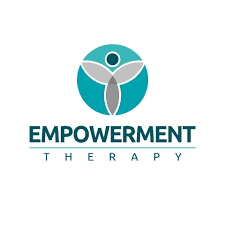Mental health is a crucial aspect of overall wellness, and finding the right therapeutic approach can make a significant difference. Empowermental therapy is an innovative method designed to help individuals regain control over their emotions, thoughts, and behaviors. This therapy focuses on self-empowerment, personal growth, and resilience, making it a transformative option for those seeking long-term mental well-being.
What is Empowermental Therapy?
Empowermental therapy is a unique approach that combines traditional psychotherapy techniques with self-empowerment strategies. The goal is to help individuals build self-awareness, confidence, and emotional resilience to overcome challenges in life.
Unlike conventional therapy that mainly addresses symptoms, empowermental therapy works on strengthening a person’s mindset, encouraging self-growth, and promoting a proactive approach to mental health.
The Core Principles of Empowermental Therapy
1. Self-Empowerment
The foundation of empowermental therapy is to help individuals take control of their thoughts and emotions. This approach encourages people to recognize their inner strength and develop a positive mindset.
2. Cognitive Restructuring
Negative thought patterns can contribute to stress, anxiety, and depression. Empowermental therapy helps individuals identify and replace these thoughts with healthier, more constructive beliefs.
3. Emotional Resilience
Life is full of challenges, but resilience helps individuals bounce back from adversity. This therapy teaches coping mechanisms to handle stress, failures, and unexpected events with confidence.
4. Mindfulness and Self-Awareness
Practicing mindfulness allows individuals to stay present and aware of their emotions. This enhances self-awareness, leading to better decision-making and emotional balance.
5. Goal-Oriented Therapy
Rather than focusing solely on past traumas or issues, empowermental therapy emphasizes setting and achieving personal goals, which fosters a sense of purpose and accomplishment.
Benefits of Empowermental Therapy
1. Reduces Anxiety and Depression
By addressing negative thoughts and emotions, individuals experience reduced anxiety and depression, leading to a more fulfilling life.
2. Improves Self-Esteem
This therapy helps build confidence and a strong sense of self-worth, allowing individuals to take on new challenges without fear.
3. Enhances Problem-Solving Skills
Empowermental therapy teaches individuals how to approach problems with a solution-focused mindset, improving both personal and professional relationships.
4. Encourages Emotional Stability
People who engage in empowermental therapy develop stronger emotional regulation skills, making them more resilient in the face of challenges.
5. Promotes Positive Relationships
As individuals become more self-aware and emotionally stable, their relationships with family, friends, and colleagues improve.
How to Get Started with Empowermental Therapy
If you are interested in exploring empowermental therapy, here are some steps to begin your journey:
1. Find a Qualified Therapist
Look for a licensed therapist who specializes in empowerment-based therapy techniques.
2. Set Clear Goals
Before starting therapy, define what you want to achieve—whether it’s reducing anxiety, improving self-confidence, or managing stress.
3. Commit to Self-Growth
Therapy is most effective when individuals actively engage in self-improvement outside of sessions. Practice mindfulness, journaling, or other self-awareness techniques.
4. Be Open to Change
Empowermental therapy requires a willingness to challenge negative beliefs and adopt a more proactive mindset.
5. Stay Consistent
Regular therapy sessions and consistent practice of learned techniques will ensure long-term mental and emotional benefits.
Conclusion
Empowermental therapy is a powerful approach that goes beyond traditional mental health treatments. It emphasizes self-growth, confidence, and resilience, making it an excellent choice for individuals looking to take charge of their mental well-being. By incorporating these principles into daily life, anyone can develop a stronger mindset and a more fulfilling life.

